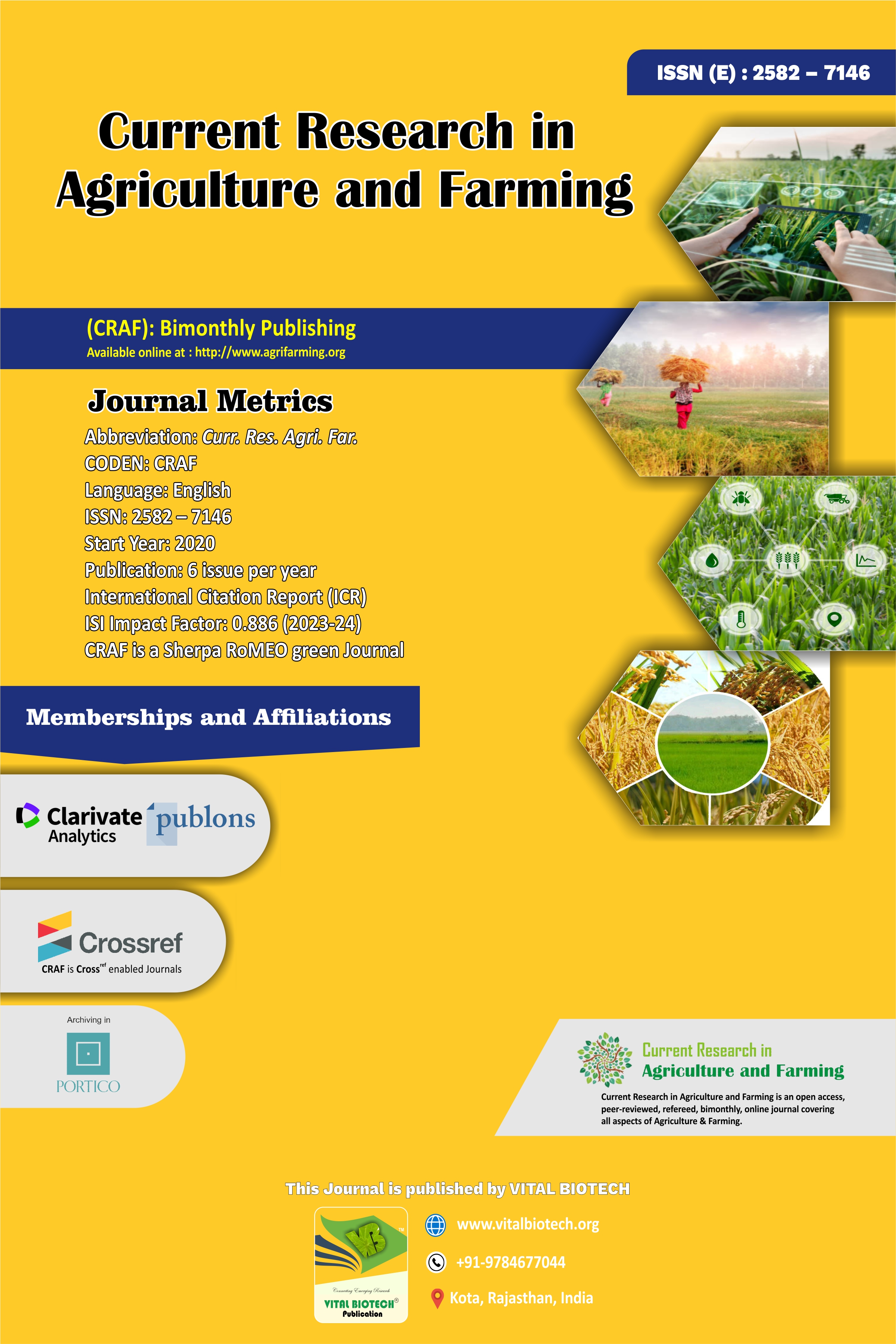

Current Research in Agriculture and Farming (CRAF)
Year : 2024, Volume : 5, Issue : 3
First page : (1) Last page : (15)
Article doi: : http://dx.doi.org/10.18782/2582-7146.238
Muhammad Ahmad1*, Sumbal Sajjad2, Muhammad Bilal3, Aimen Ishfaq4, Tumazir Kaleem5, Ghanwar Azhar6, Saqlain Murad7, and Tooba Maryam8
1Department of Agronomy, University of Agriculture, Faisalabad 38040, Pakistan
2Department of Food Science and Technology, Bahauddin Zakariya University Multan, Multan 60800, Pakistan
3Department of Soil Science, University of Agriculture, Faisalabad 38040, Pakistan
4Department of Food and Nutritional Sciences, 5Department of Horticulture,
6Department of Food Science and Technology,
PMAS Arid Agriculture University, Rawalpindi 46300, Pakistan
7Department of Agronomy, University of Agriculture, Faisalabad 38040, Pakistan
8Department of Food Science and Technology, Government College University, Faisalabad 38000, Pakistan
*Corresponding Author E-mail: ahmad391ch@gmail.com
Received: 12.04.2024 | Revised: 29.05.2024 | Accepted: 14.06.2024
ABSTRACT
The application of engineering to the production of sustainable food systems is examined more closely in this review. It deals with the important trifecta of the food system: issues such as food security, harnessing natural resources, and the catch-22 of sustainable economic development. Thus, it has shown very new innovations in food processing leading to an enhancement in the safety and shelf life of food by methods like high pressure preservation and biopreservation. It also addresses energy efficiency endeavours and disposal mechanisms particularly those revolving on the conversion of waste into energy. New technologies like Artificial Intelligence, the Internet of Things, and blockchain technology will also be covered as these if properly deployed can significantly reduce inputs because they will help in utilising all available resources in farming and help in providing traceability in the food chain. This review underscores the fact and necessity of technology adoption towards the realization of the sustainable development goals for food security, the environment, and climate change resilience. Combining these technologies the paper concludes that this would make a sustainable global food economy, efficient and capable of addressing some of the most dire contingencies of the future.
Keywords: Blockchain technology, Food processing, Climate change resilience, Global food economy
Full Text : PDF; Journal doi : http://dx.doi.org/10.18782
Cite this article: Ahmad, M., Sajjad, S., Bilal, M., Ishfaq, A., Kaleem, T., Azhar, G., Murad, S., & Maryam, T. (2024). Integrating Engineering and Technology for Sustainable Food Systems, Curr. Rese. Agri. Far. 5(3), 1-15. doi: http://dx.doi.org/10.18782/2582-7146.238

